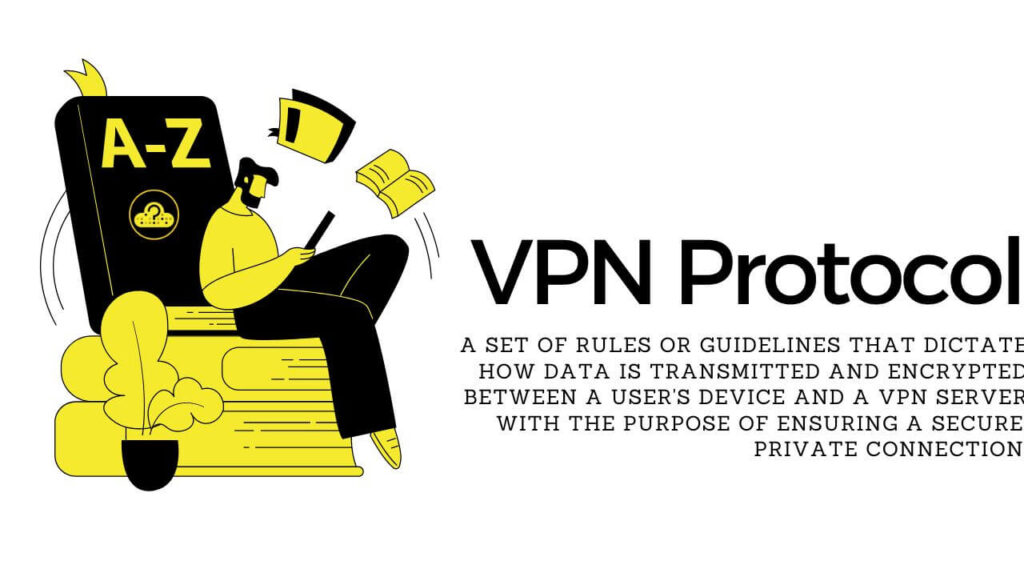What Is a VPN Protocol?
A VPN protocol comprises a defined set of rules or instructions governing the path through which your data travels between your device (be it a computer or any other) and the VPN server. These protocols form the foundation for VPN providers, guaranteeing a steadfast and secure connection.
- Short Definition:
-
A VPN protocol is a set of rules or guidelines that dictate how data is transmitted and encrypted between a user’s device and a VPN server, ensuring a secure and private connection over the internet.

- Extended Definition:
-
A VPN protocol refers to a standardized set of rules, procedures, and cryptographic algorithms that govern the way data packets are encapsulated, transmitted, and decrypted during their journey between a user’s device and a remote VPN server. These protocols are integral to the functioning of Virtual Private Networks (VPNs) and play a crucial role in establishing a secure, encrypted, and private communication channel over public networks like the internet.
VPN protocols implement various encryption techniques to protect the confidentiality, integrity, and authenticity of data, shielding it from unauthorized access and potential threats. Some common VPN protocols include OpenVPN, L2TP/IPsec, IKEv2/IPsec, PPTP, and SSTP, each with its strengths and weaknesses in terms of security, speed, and compatibility.
The Importance of VPN Protocols
Here are the main reasons why VPN protocols are crucial for both the provider and the end user:
- Enhanced Security: VPN protocols employ strong encryption algorithms to scramble data, making it nearly impossible for eavesdroppers and hackers to intercept or decipher the transmitted information. This ensures that sensitive data, such as personal information, passwords, and financial details, remain protected from unauthorized access.
- Privacy and Anonymity. By using VPN protocols, users can hide their actual IP address and route their internet traffic through the VPN server. This creates a layer of anonymity, preventing websites, advertisers, and online services from tracking their online activities and location.
- Access to Restricted Content. VPN protocols allow users to bypass geo-restrictions and access content that may be blocked or limited in their current location. By connecting to a VPN server in a different region, users can appear as if they are accessing the internet from that location, granting them access to region-specific content and services.
- Data Integrity. VPN protocols ensure data integrity by verifying the authenticity of transmitted data. This prevents unauthorized parties from modifying or tampering with the data packets during transmission.
- Versatility and Compatibility. Different VPN protocols cater to varying needs, such as balancing between security and speed or offering compatibility with a wide range of devices and operating systems. Users can choose the most suitable protocol based on their requirements.
In conclusion, VPN protocols are the backbone of secure and private communication over the internet. Their role in safeguarding data, ensuring privacy, and granting access to restricted content makes them essential tools for individuals, businesses, and organizations seeking to protect their online activities and sensitive information.
For more definitions, check out our dedicated Definitions List.







